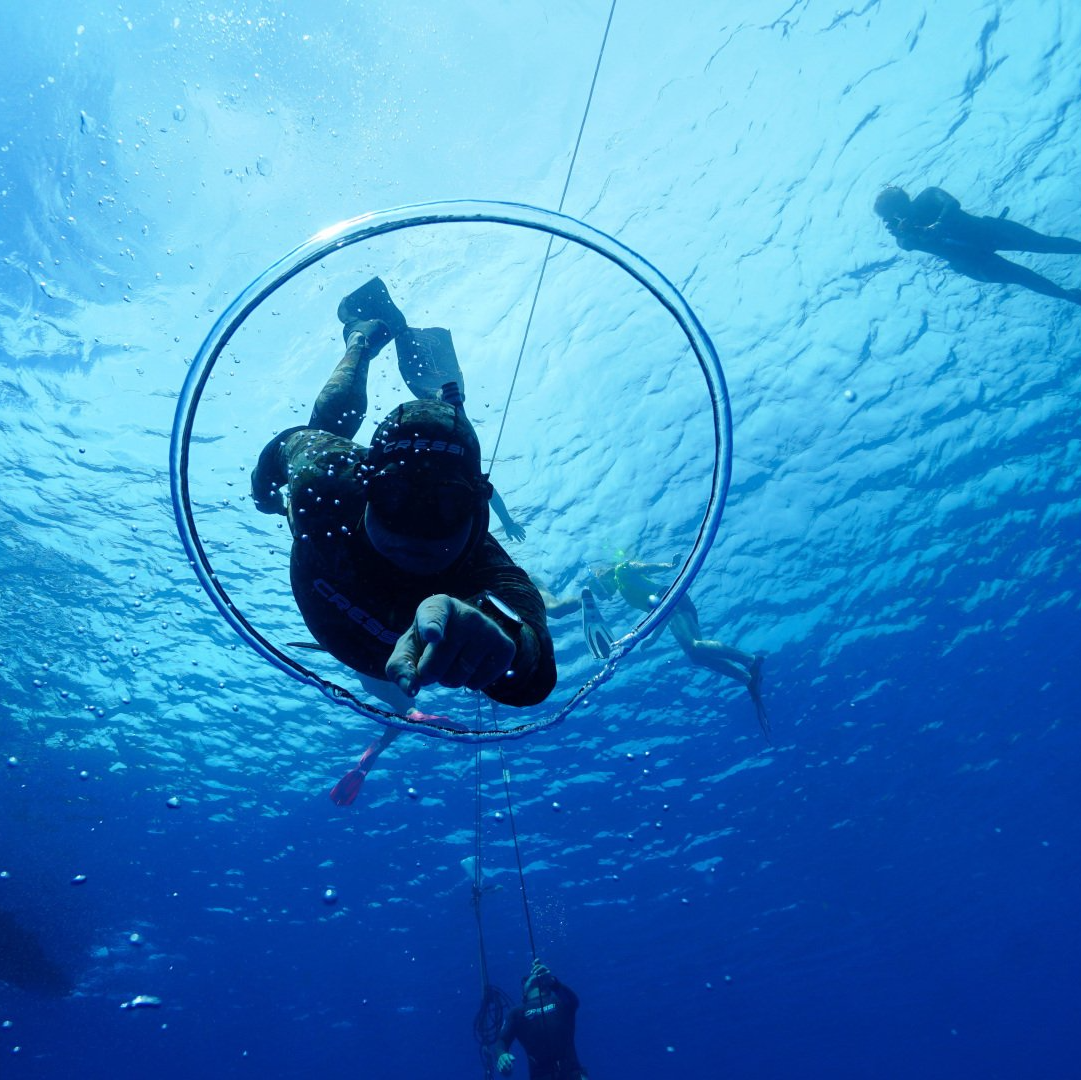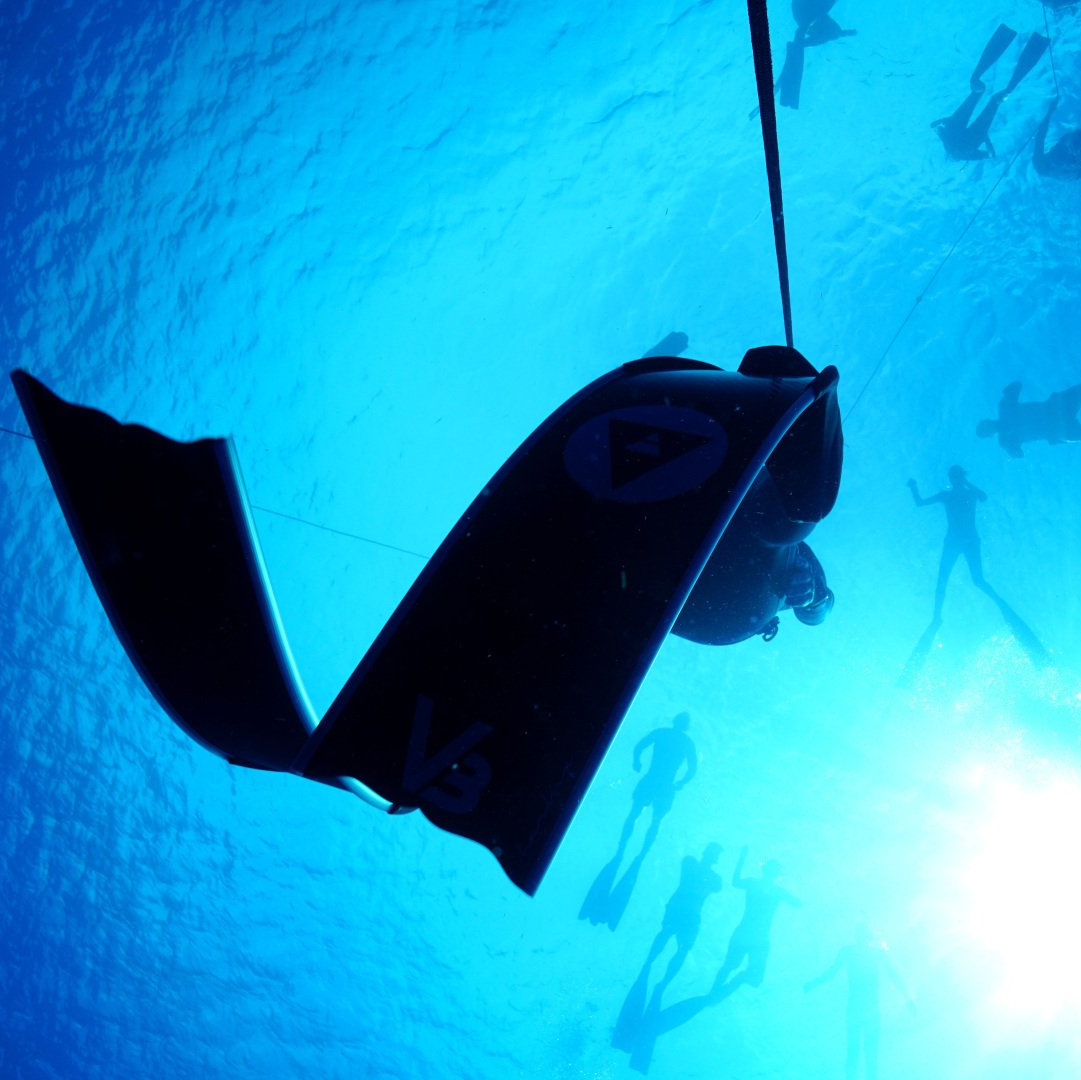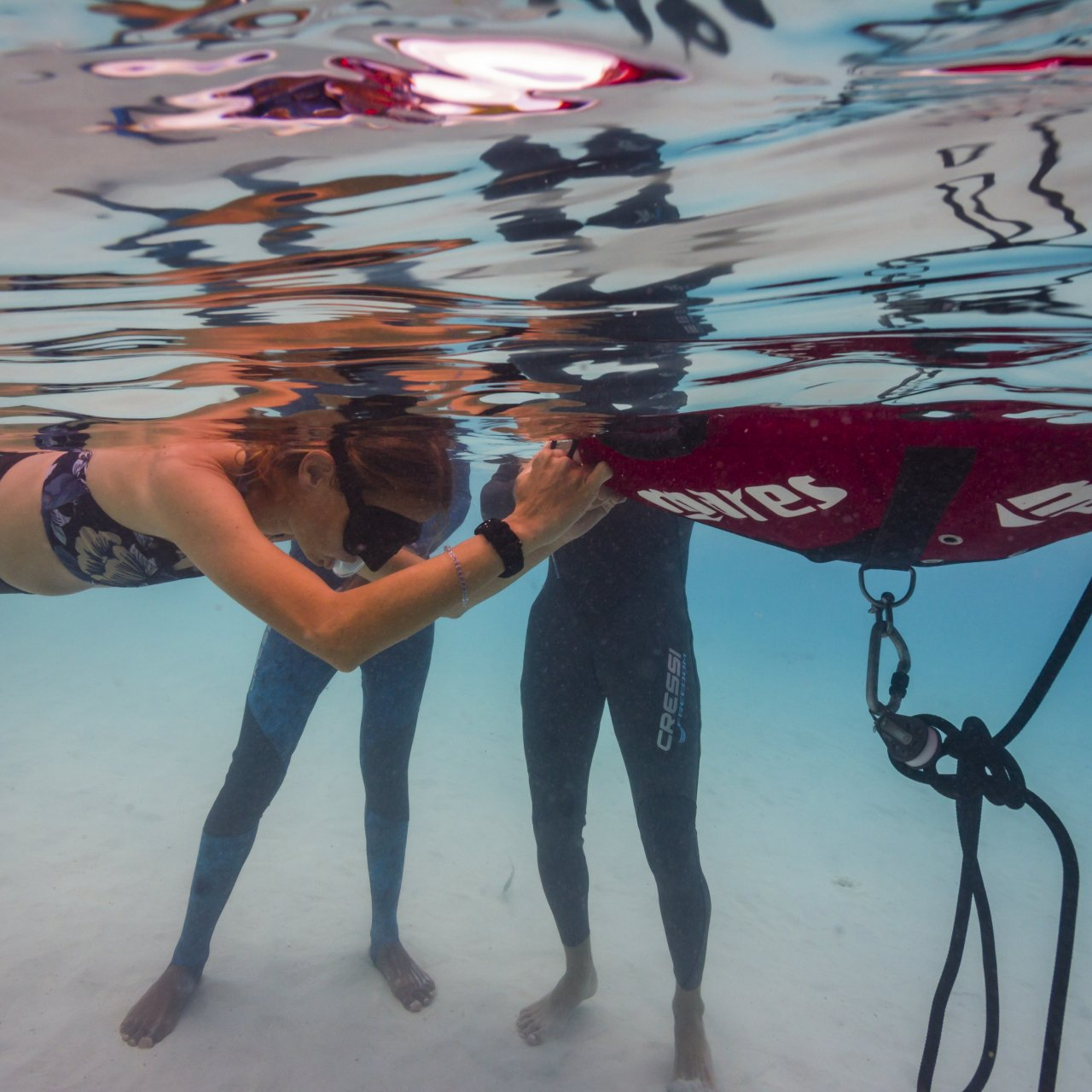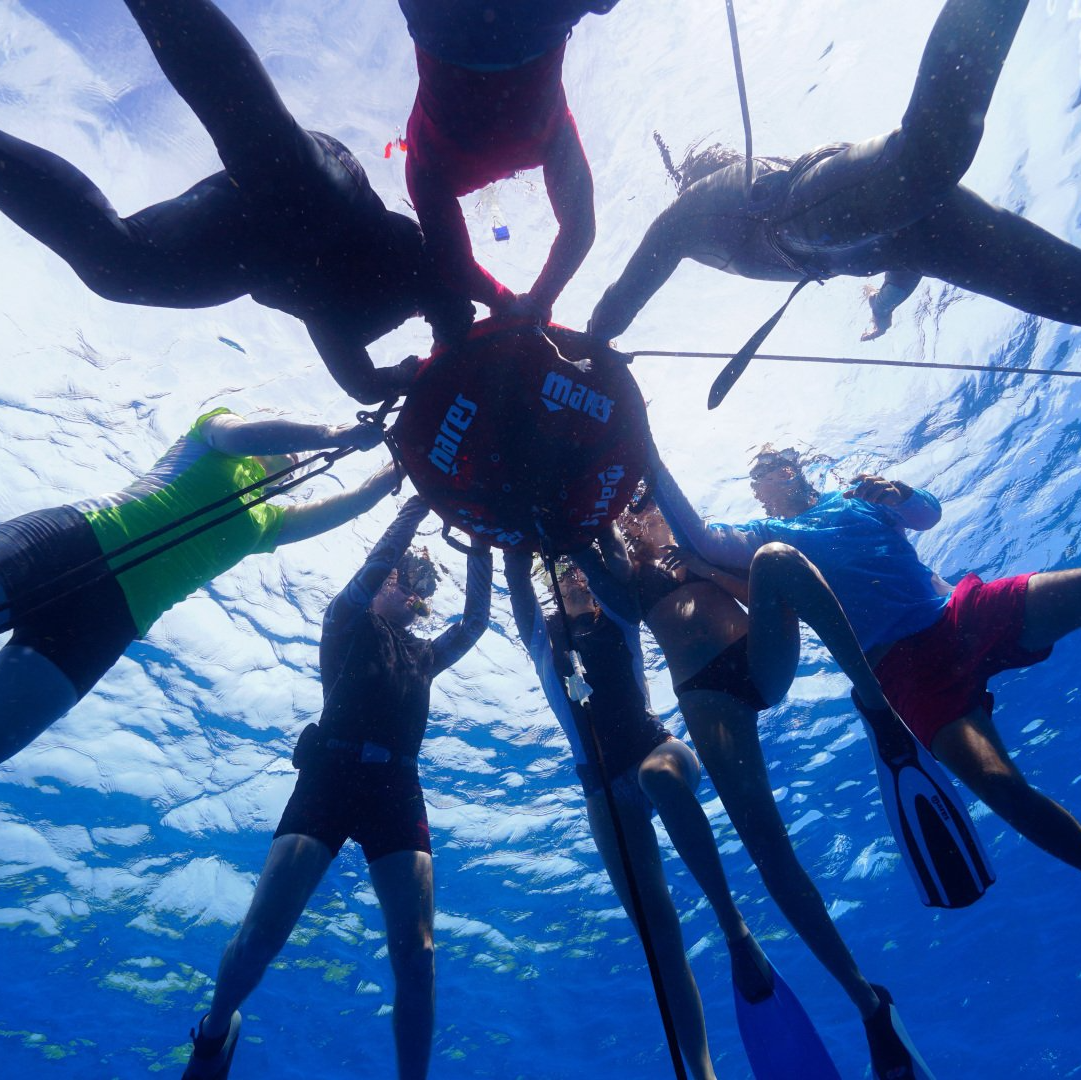Freedive Center Curacao
Freediving is breath-hold diving, also referred to as ‘Apnea’ which is the modern Latin word from the Greek ‘Apnoia’ or ‘Apnous’, which means ‘breathless’. In other words freediving is “diving under water whilst holding one’s breath”.
Today most people associate freediving with images of athletes diving down to the darkest depths of the ocean with only the air in their lungs, but in fact every time you are exploring the water and diving under and holding your breath you are a freediver to.
History shows that humans have been freediving for about 8,000 years for food, pearls and collecting sea sponges from the deep. The most commonly known are probably the ‘pearl diving mermaids of Japan’ also known as the ‘Ama divers’.
Ama, which means ‘ woman of the sea’, have been around for more than 3000 years and is a ancient tradition which is still maintained across many coastal parts of Japan, however, the original practices of these naked sea-goddesses has largely gone lost because of lack of interest of the younger generations.
Nowadays we mostly know freediving and freedivers as athletes diving down in the attempt to break and have the new world record in their names.
Freediving, breath-hold diving, skin-diving or snorkeling is what the sport is referred to often. All in which we use a mask, snorkel and fins and a single breath to explore the underwater no matter how deep they go.
Because of the sports rapidly growing fame the freediving has evolved in a more practiced past time for recreational freedivers and more organizations are offering the sport in the form of classes and courses for people to learn more about freediving, the risks that are to it and the safety measure you need to take in considerations while doing this sport and most important the safety rules and regulations of the sport. Even thou the temptation to just start freediving on your own might feel like a good idea, it really isn’t, since there are some risks to the sport it is highly recommended to take a class or course to learn the basic techniques of freediving and breath holding.
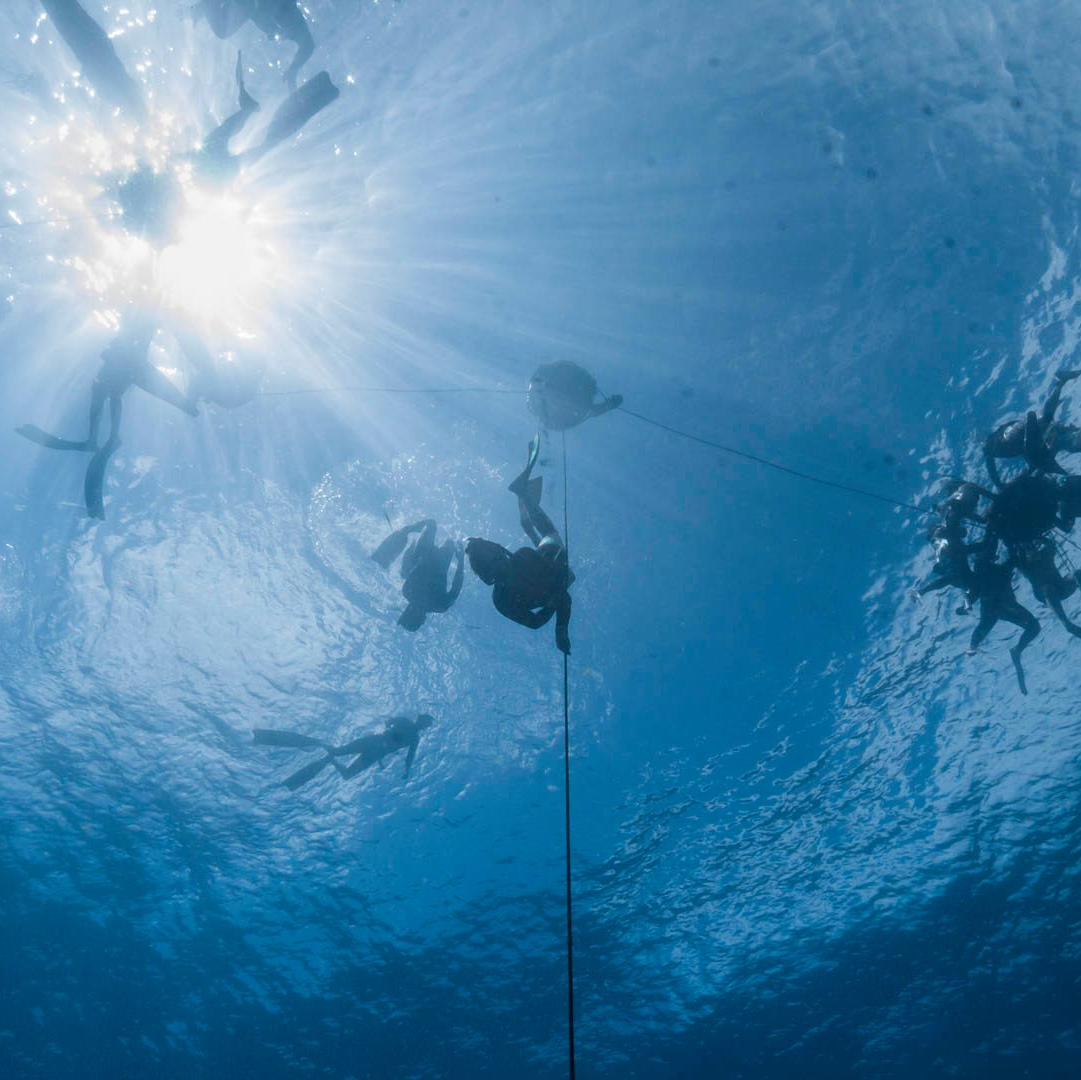
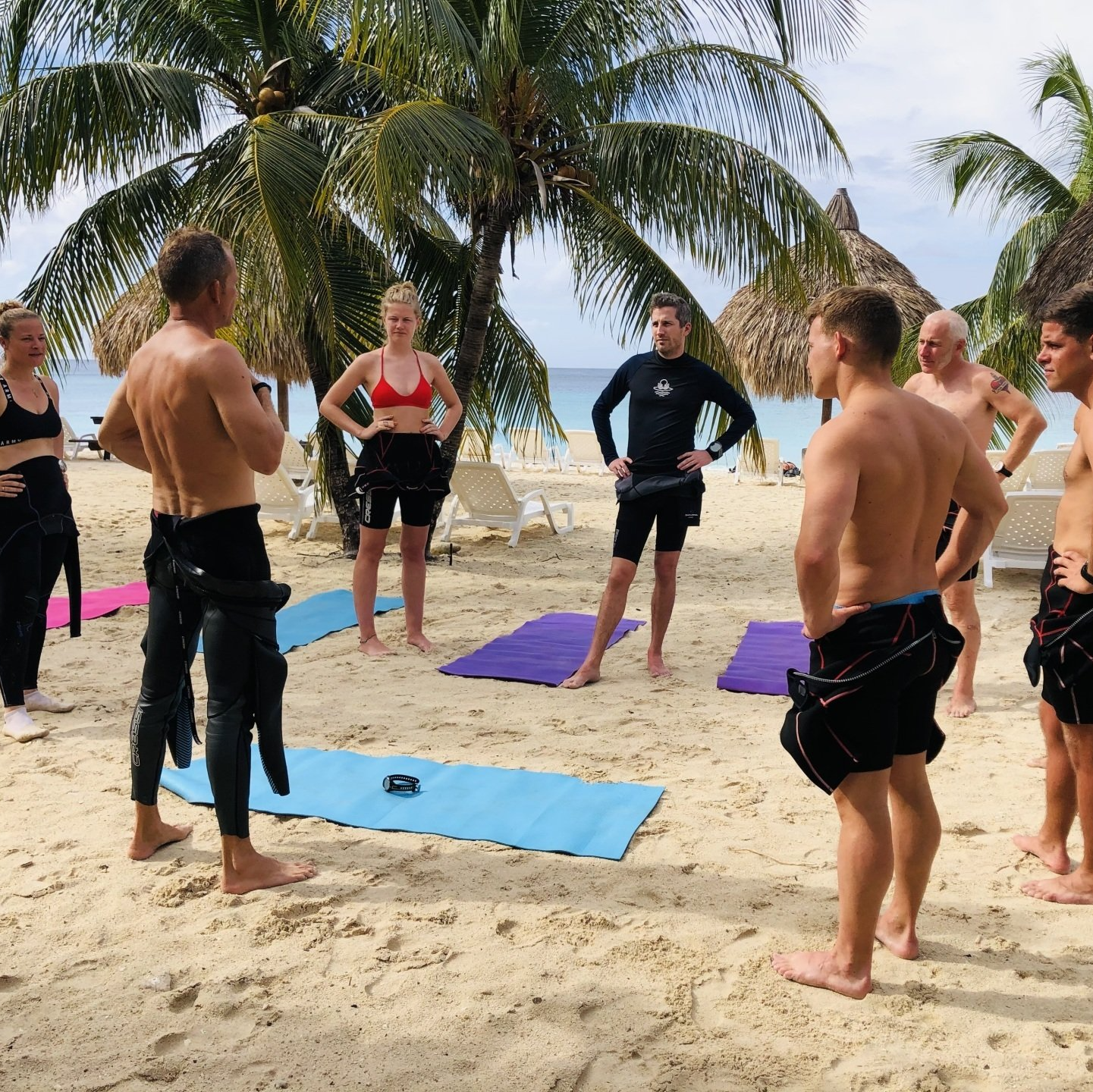
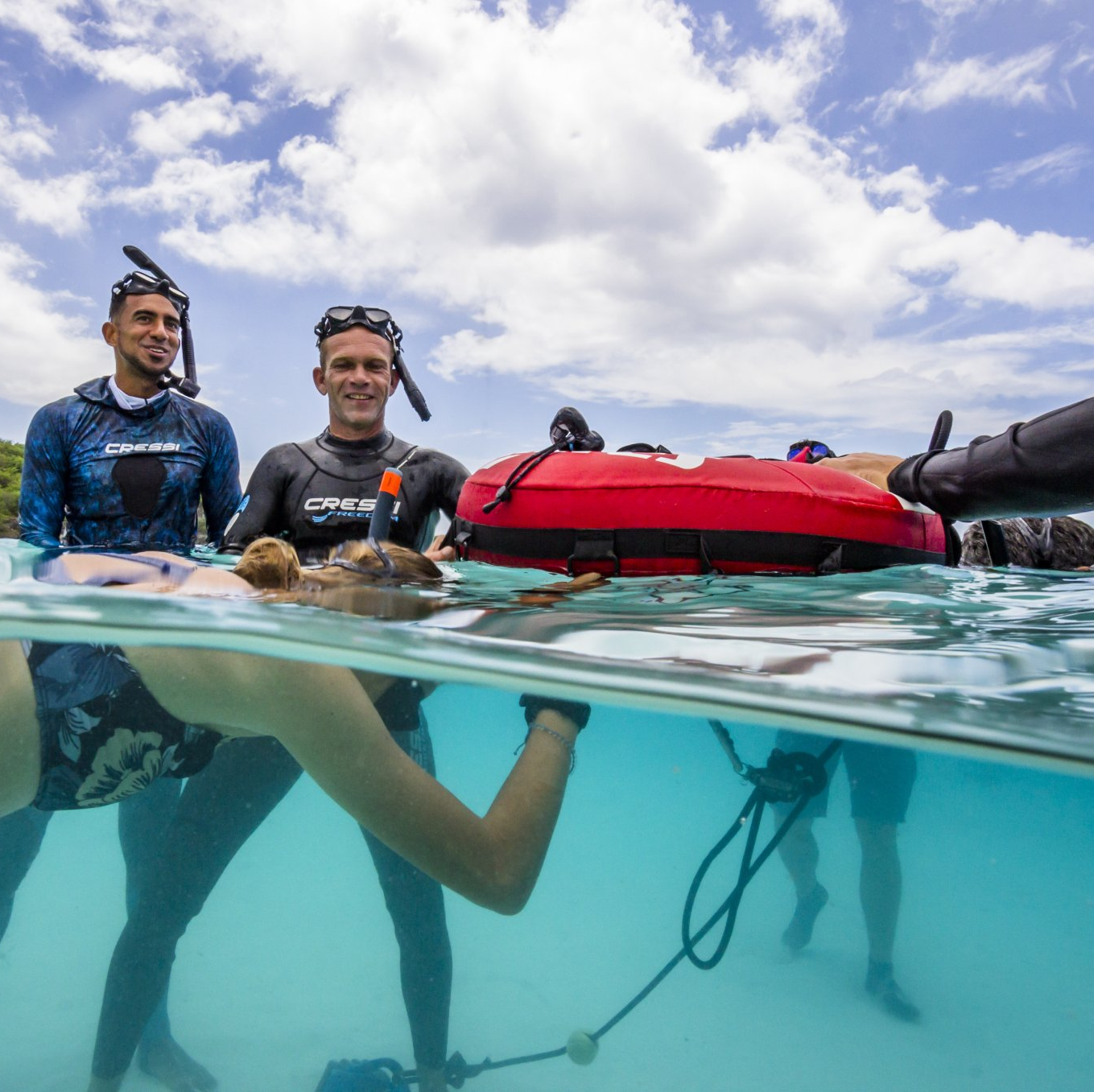
PADI Freediver Courses
If you think freediving is just like snorkeling (but going really deep) - think again. Freediving is an entirely different way to experience the underwater world. You’ll dive deeper, stay down longer, and feel part of the ocean itself.
Freediving can also be a competitive sport. Divers around the world train for years to set world records in static apnea, dynamic apnea, free immersion and constant weight freediving.
Reconnect With Nature
Freedivers silently blend into the underwater environment. They enjoy magical encounters with shy marine life and hear all the sounds of the ocean: fish munching on coral, the tide pulsing at the rocks, and even the calls of dolphins and whales!
Freediving is the perfect way to reconnect to the sea and explore the depths of the oceans with minimal impact. Some people freedive for the personal challenge, but for many, the true appeal of freediving is in the silence and calm it brings to their hectic lives.
Do I Need a Freediving Course?
Though freediving appears to be relatively simple, there is a lot to know about safety and physiology. A non-trained freediver risks ear, sinus, and lung injuries, blackouts, and could potentially drown. An experienced, insured freediving instructor can help you advance your skills and avoid serious risks. If you already have some freediving experience, the expert techniques taught by PADI Freediving instructors can help you quickly increase depth and time underwater but also enhance your personal and buddy-related safety skills.
The PADI Freediver program
Consist of four courses:

